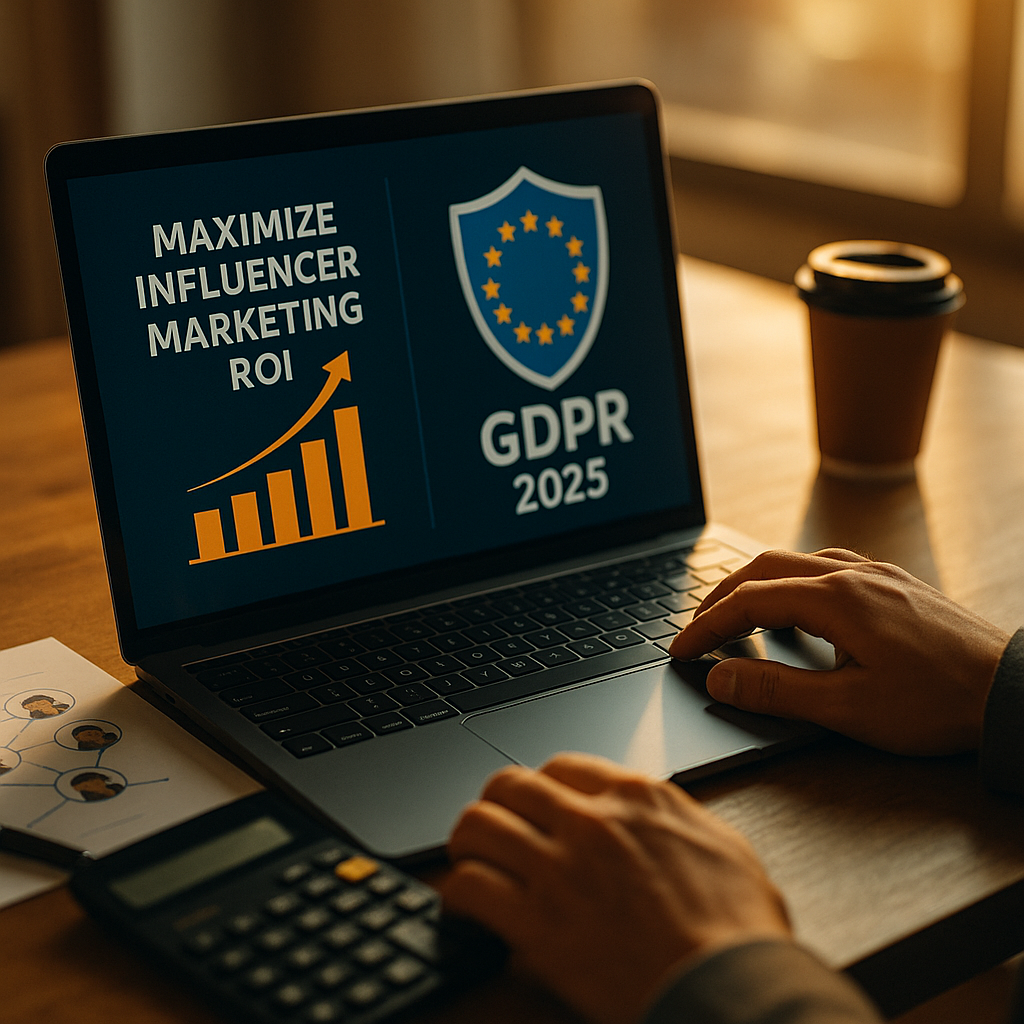When it comes to influencer marketing in 2025, GDPR compliance remains a critical concern for brands and creators alike. Navigating the regulations isn’t just about ticking boxes—it’s about building consumer trust and avoiding costly penalties. Discover how to maximize influencer marketing ROI while staying on the right side of GDPR rules in this essential guide.
Understanding GDPR’s Impact on Influencer Marketing
The GDPR and influencer marketing landscape has evolved rapidly, especially as brands collect and process more customer data via influencers’ campaigns. GDPR, the General Data Protection Regulation, mandates strict guidelines for how personal data is handled. In influencer marketing, this affects not only how brands process consumer information but also how influencers gather, store, and use data such as follower details, email addresses, and campaign analytics. Failing to comply can result in substantial fines and reputational damage, making awareness and adherence to GDPR paramount for all parties involved.
Key Data Protection Principles Every Influencer Campaign Must Follow
Every influencer marketing effort that touches EU citizens’ data must abide by GDPR’s core data protection principles. These include:
- Transparency: Both brands and influencers must clearly communicate how personal data is collected, used, and stored.
- Purpose Limitation: Data collected during campaigns should be used strictly for their defined purpose, such as campaign analytics or rewards distribution.
- Data Minimization: Only collect data necessary for the campaign objectives—avoid gathering excessive data “just in case.”
- Security: Implement robust measures to protect data from unauthorized access, breaches, or leaks.
Influencers and brands that demonstrate a commitment to these principles stand out as trustworthy and responsible collaborators, enhancing not just compliance but overall brand image.
Working with Influencers: Contracts, Consent, and Transparency
Securing valid consent is crucial under GDPR—especially in influencer marketing, where personal data often changes hands. Contracts between brands and influencers should spell out:
- What data will be collected (e.g., names, emails, demographic details).
- How data will be processed, stored, and deleted after the campaign.
- Responsibilities for obtaining explicit consent from users or followers when required (for instance, in contests or data-driven campaigns).
Transparency is also key: inform users about how their data is handled via clear privacy policies and campaign disclosures. Recent surveys indicate influencers who prioritize these steps report higher audience trust, ultimately supporting long-term growth.
Social Media Platforms, Giveaways, and Data-Sharing Pitfalls
Social media platforms are central to many influencer campaigns, yet they present unique risks. Brands and influencers often run giveaways or collect audience data via third-party tools. Here’s what you need to watch out for:
- Platform Policy Compliance: Always ensure any contest or campaign abides by the platform’s data usage policies as well as GDPR.
- Third-Party Apps: Tools for managing campaigns or giveaways must themselves be GDPR-compliant. Research vendors before integrating them into campaigns.
- Data-Sharing Risks: Avoid sharing collected data outside of agreed parties unless users have expressly consented.
Sophisticated consumers in 2025 are increasingly savvy about privacy—they will ask how their data is used. Have clear answers (and policies) ready.
Influencer Marketing Analytics: Lawful Data Processing and Reporting
Measuring influencer campaign success depends on robust data analytics. Yet GDPR places limits here as well. When evaluating campaign ROI or audience engagement:
- Use anonymization or pseudonymization strategies whenever possible to protect individual identities.
- Limit access to raw data within both brand and influencer teams; only those who need to analyze or report should ever see sensitive details.
- Record all processing activities, as GDPR requires thorough documentation in case of audits.
By embedding GDPR-friendly practices into analytics workflows, brands bolster transparency, reduce legal risk, and foster consumer confidence—all vital for sustainable influencer partnerships.
Penalties, Enforcement Trends, and the Cost of Non-Compliance
Regulatory agencies in 2025 have increased focus on influencer marketing campaigns that cross GDPR boundaries. Enforcement actions have risen in recent years, targeting both major brands and micro-influencers. Common violations include unsolicited messages, lack of user consent, and poor data security. Fines may range from thousands to millions of euros, depending on severity and negligence. Beyond financial loss, companies risk lasting reputational harm and loss of influencer partners, underscoring the importance of robust compliance programs and routine audits.
Conclusion: Secure Your Influencer Strategy with Data Ethics
GDPR and influencer marketing will remain intricately linked for as long as personal data drives brand outreach. Invest in strong policies, transparent practices, and ongoing education—for brands and influencers alike. By embracing data ethics and compliance, you not only avoid penalties but also build lasting trust with your audiences and partners.
FAQs: GDPR and Influencer Marketing
-
Do influencers need explicit consent to use audience data?
Yes, influencers and brands must obtain explicit consent before collecting or sharing personal data, especially for activities like giveaways or newsletters. Consent should be freely given, specific, informed, and documented.
-
What happens if my influencer campaign violates GDPR?
Violations can result in financial penalties, forced data deletion, suspension of campaigns, and reputational damage. Regulatory bodies may investigate both brands and influencers for breaches.
-
Are “micro-influencer” campaigns exempt from GDPR rules?
No. All influencer campaigns that involve processing personal data of EU residents must comply with GDPR, regardless of campaign size or influencer reach.
-
Can brands use analytics tools if GDPR applies?
Yes, but data must be anonymized where possible, and only necessary analytics data should be processed. Choose tools that demonstrate GDPR compliance and document how personal information is handled.
-
Does GDPR apply if a brand or influencer is outside the EU?
Yes, if you target or process the data of individuals in the EU, GDPR applies—even if you’re based elsewhere. Ensure policies and systems are compliant before launching EU-targeted campaigns.
